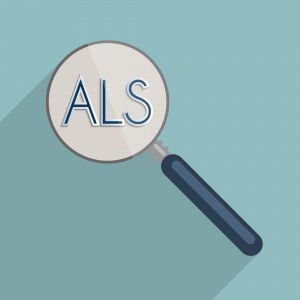Rare Genetic Variants May Underlie the Pathogenesis of Sporadic ALS

 In a new study entitled “Exome sequencing of case-unaffected-parents trios reveals recessive and de novo genetic variants in sporadic ALS,” researchers report to have identified rare genetic variants underlying sporadic cases of amyotrophic lateral sclerosis. The study was published in the journal Scientific Reports.
In a new study entitled “Exome sequencing of case-unaffected-parents trios reveals recessive and de novo genetic variants in sporadic ALS,” researchers report to have identified rare genetic variants underlying sporadic cases of amyotrophic lateral sclerosis. The study was published in the journal Scientific Reports.
Amyotrophic lateral sclerosis is a progressive neurological disorder characterized by the death of motor neurons. The disease is caused by genetic variations, which account for 60% of familial cases of ALS, but the contribution of genetic defects to sporadic ALS is mostly unknown. A question that still remains is whether the majority of the cases with sporadic ALS are due to genetic predisposition or environmental factors, or a combination of both.
In this study, the authors sought to identify genetic variants that could underlie the sporadic cases of ALS. Most commonly, in sporadic diseases these genetic variants are either recessive or de novo mutations. The team performed exome sequencing (a technique for sequencing all the protein-coding genes in a genome) of 44 patients and their unaffected parents. Patients and parents (both mother and father) samples were retrieved from the Australian Motor Neuron Disease DNA Bank.
The team discovered several candidate genes harboring recessive or compound heterozygous variants in the screened families. Specifically, they found compound heterozygous variants (meaning the existence of two heterogeneous recessive variants at a particular gene locus) in 27% of ALS patients, while in 14% of the patients they discovered homozygous recessive variants and novo variants in 27% of the cases. All these variants are highly likely to play a role in ALS pathogenesis.
The authors identified the function of the affected genes and found there was an enrichment of genes with nucleotide binding capacity, ATPase activity, and dynein heavy chain. One of these genes, Abca2, the authors noted is highly expressed in the brain and is a key player in regulating low-density lipoprotein metabolism in neurons. Other genes identified included Rab25 and Cacna1h, involved in membrane trafficking and calcium homeostasis, respectively. While Rab25 was previously correlated to Parkinson’s disease, calcium deregulation is an established compromised step in mouse models of ALS.
The authors highlight that their findings suggest that rare recessive variants and de novo mutations can indeed underlie the pathogenesis of sporadic ALS.
Roger Pamphlett, associate professor at The University of Sydney and study lead author commented in a press release, “The findings indicate that the genetic changes underlying many cases of sporadic motor neuron disease could stem from one of two sources. Sufferers either have a rare combination of genetic changes they inherited from their otherwise normal parents, or they have newly arising changes in genes that were not present in their parents.”






